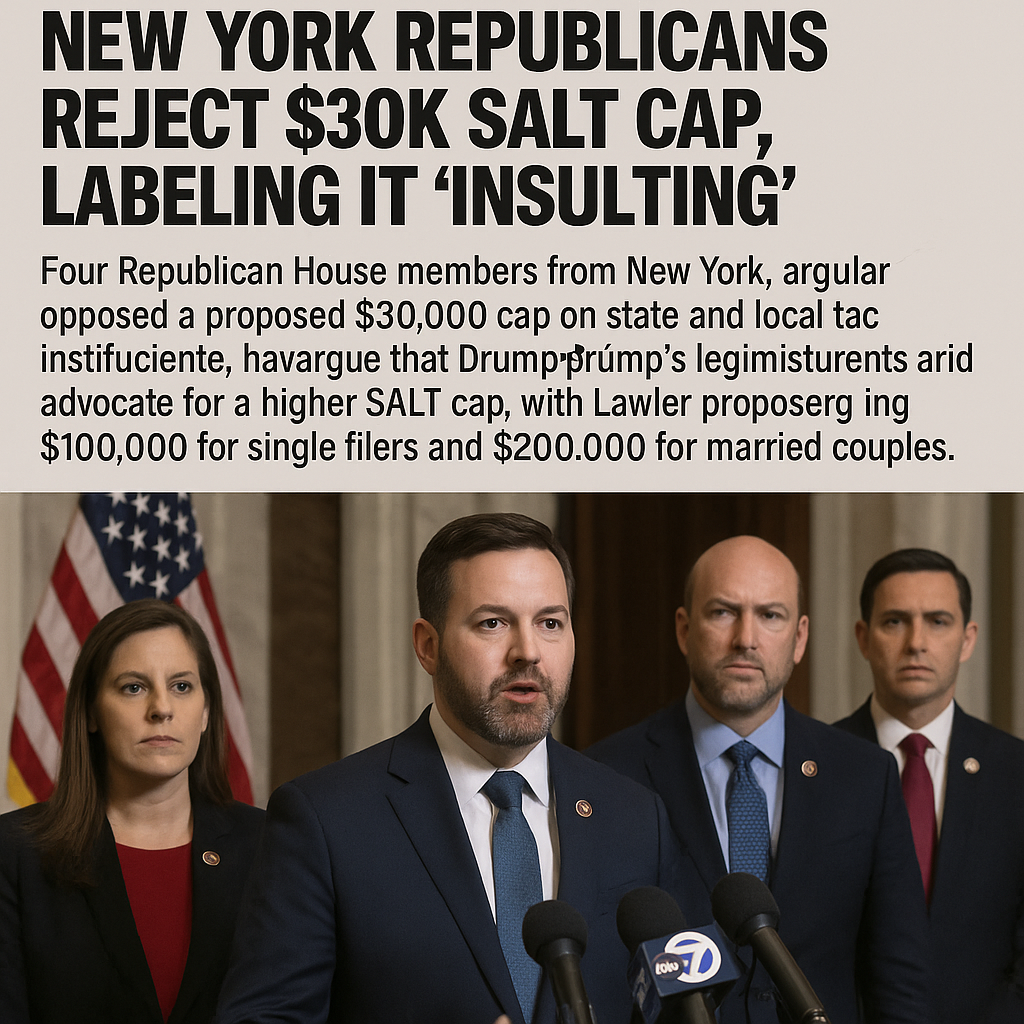Headline: Federal SALT Cap Remains a Slap in the Face to Taxpayers; Time for Real Reform
Washington D.C. – The ongoing controversy surrounding the $30,000 cap on State and Local Tax (SALT) deductions continues to stir outrage among taxpayers, especially those in high-tax blue states. Critics argue that the cap not only fails to adequately address the issue of over-taxation but also acts as a mere political tool rather than a genuine solution. While some lawmakers, particularly from New York, are calling for an increase in the SALT cap to $60,000, others believe this is just a temporary fix that ignores the deeper systemic problems of fiscal irresponsibility.
The Real Issue:
The $30,000 cap has been viewed by many as an insult to taxpayers already burdened with high state and local taxes. For residents of states like New York, California, and New Jersey, the cap is seen as a slap in the face. These states already impose some of the highest tax rates in the country, and the SALT cap limits the ability to deduct state and local taxes from their federal returns. The result is higher federal tax bills for these taxpayers, further exacerbating their financial struggles.
While some lawmakers, particularly those from New York, have been vocal in demanding an increase to the SALT cap, even a $60,000 cap does little to address the underlying issues. Critics argue that raising the cap would only temporarily alleviate the pressure on taxpayers without addressing the root cause: bloated state governments that rely on federal loopholes to shield their own fiscal irresponsibility.
The Political Game:
Many believe that the debate over the SALT cap has become a political game, with Washington D.C. lawmakers more interested in scoring points for their party than in solving the problem at hand. By proposing half-measures like an increased SALT cap, lawmakers are avoiding the real issue: states’ excessive spending and the need for meaningful fiscal reform.
New York’s Demands:
New York’s representatives in Congress have been particularly vocal in demanding more relief for their constituents. However, even if the SALT cap were raised to $60,000, it would only provide temporary relief and would do little to address the wasteful spending in the state’s budget. Critics argue that the focus should shift from securing more federal tax breaks to forcing state governments to rein in wasteful spending and reduce their reliance on federal loopholes.
The Path Forward:
Instead of continuing to provide federal tax breaks that enable state governments to avoid fiscal responsibility, it’s time for a more comprehensive approach. Lawmakers should prioritize forcing states to eliminate wasteful spending, streamline budgets, and make structural changes to their tax systems. Rather than relying on federal deductions as a shield, states should be held accountable for their own fiscal decisions.
Conclusion:
The debate over the SALT cap is not just about taxes; it’s about accountability and fiscal responsibility. As long as Washington D.C. continues to provide half-measures and political solutions, the underlying issues of state budget mismanagement will persist. It’s time for a real solution that forces states to make the hard choices, rather than relying on federal loopholes to paper over their fiscal recklessness.

